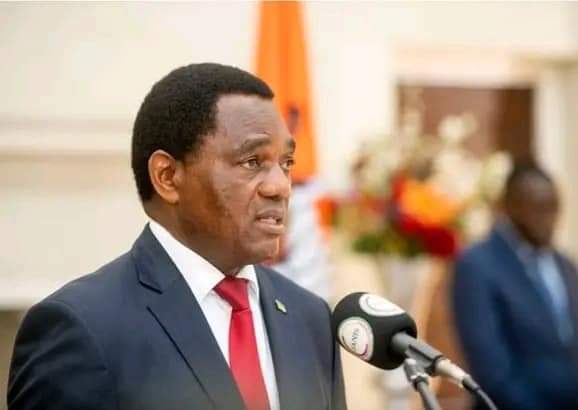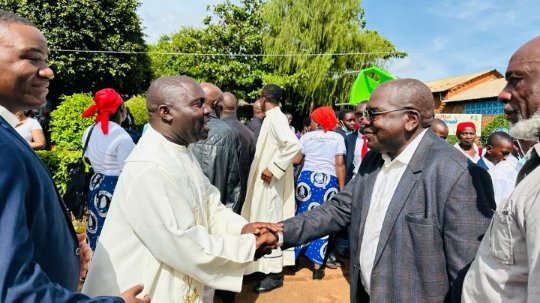
Zambia’s progress demands a shift from the current ZESCO leadership of apologies to the leadership grounded in accountability, expertise, and merit, for no nation can thrive on an energy grid as unreliable as the current ZESCO leadership.
Lusaka, Oct. 18 – ZESCO, Zambia’s national electricity provider, has issued an apology to President Hakainde Hichilema following a power outage at the Trans-African Christian University while the Head of State was addressing a gathering.
Also Read: Zambia’s Quest for an Ibrahim Traoré: The Leadership Void in Unlocking National Wealth! Zambia’s failure to harness its rich emerald resources is a result of poor leadership, stunting economic growth despite the vast potential for prosperity through local ownership and value addition.
Although ZESCO’s statement may seem like a gesture of accountability, the incident highlights a much more significant and troubling reality: the frequent power cuts that have become a daily occurrence across the nation. For Zambians, power outages are as predictable as the sunrise, yet the company continues to fall short of its own load-shedding schedule, raising serious questions about its leadership and efficiency.
The blackout at the President’s event underscores the glaring incompetence within ZESCO’s management. How can a company tasked with the vital role of powering a nation struggle to follow its own timetable? The answer lies in the leadership choices made at the top. One would expect ZESCO to be steered by individuals with the technical expertise and vision to navigate the challenges of a growing energy demand. Instead, the appointment of leadership appears driven by factors other than merit. In this case, “who you know” seems to carry more weight than “what you know.”
Under the new dawn government, appointment of leadership appears to be driven more by “who you know” than “what you know!”
True leadership, on the other hand, is the art of recognizing and placing the right people in the right positions. It is not enough to fill critical roles based on regional or tribal affiliations—a practice that has plagued Zambia’s public service since 2021. What we are witnessing is a failure at both the institutional and national levels. The inability of ZESCO to deliver reliable power, even during a high-profile event, is a reflection of the broader challenges the country faces under the current administration. Leadership isn’t about holding power; it’s about empowering others to excel, something sorely missing in Zambia today.
President Hichilema, who campaigned on promises of efficiency, transparency, and a “new dawn” for Zambia, now faces the hard truth of governance. His administration’s inability to enforce competence in state-owned enterprises like ZESCO calls into question his commitment to real reform. It’s one thing to campaign for change, but another to deliver it. The people of Zambia expected more from this government, particularly in sectors as vital as energy. When the lights go out – literally and metaphorically – the leadership must bear the responsibility.
Zambians are tired of the endless excuses and apologies that have become the default response to these failures. The repeated power outages are more than just an inconvenience – they are a roadblock to economic progress, an impediment to daily life, and a symbol of ineffective leadership. Businesses suffer, students struggle, and the country’s overall productivity grinds to a halt every time ZESCO fails to do its job. A nation cannot hope to prosper when its energy grid is as unreliable as the very people managing it.
Also Read: Zambia Needs Leaders Who Prioritize Minerals’ Value Over Extraction Wages. The current political leadership under President Hichilema is incapable of developing Zambia, driven by an inferiority complex that prioritizes wages from foreign entities for extracting our valuable minerals.
While ZESCO’s apology to President Hichilema may have been necessary for diplomatic reasons, it fails to address the root cause of the problem: a leadership vacuum that prioritizes connections over competence. The blackout at the President’s address serves as a stark reminder that Zambia’s energy crisis is not just about power outages – it is about the powerlessness of those in charge to effect real change. If Zambia is to move forward, the government must stop relying on apologies and start prioritizing accountability, expertise, and merit-based leadership.
About Our Advocacy: Woodpecker’s Digest provides in-depth analyses and commentary on issues of national importance, alongside articles on personal development and health. We believe journalism can be a force for socio-economic change.
©2024 Woodpecker’s Digest.
Putting news into perspective







